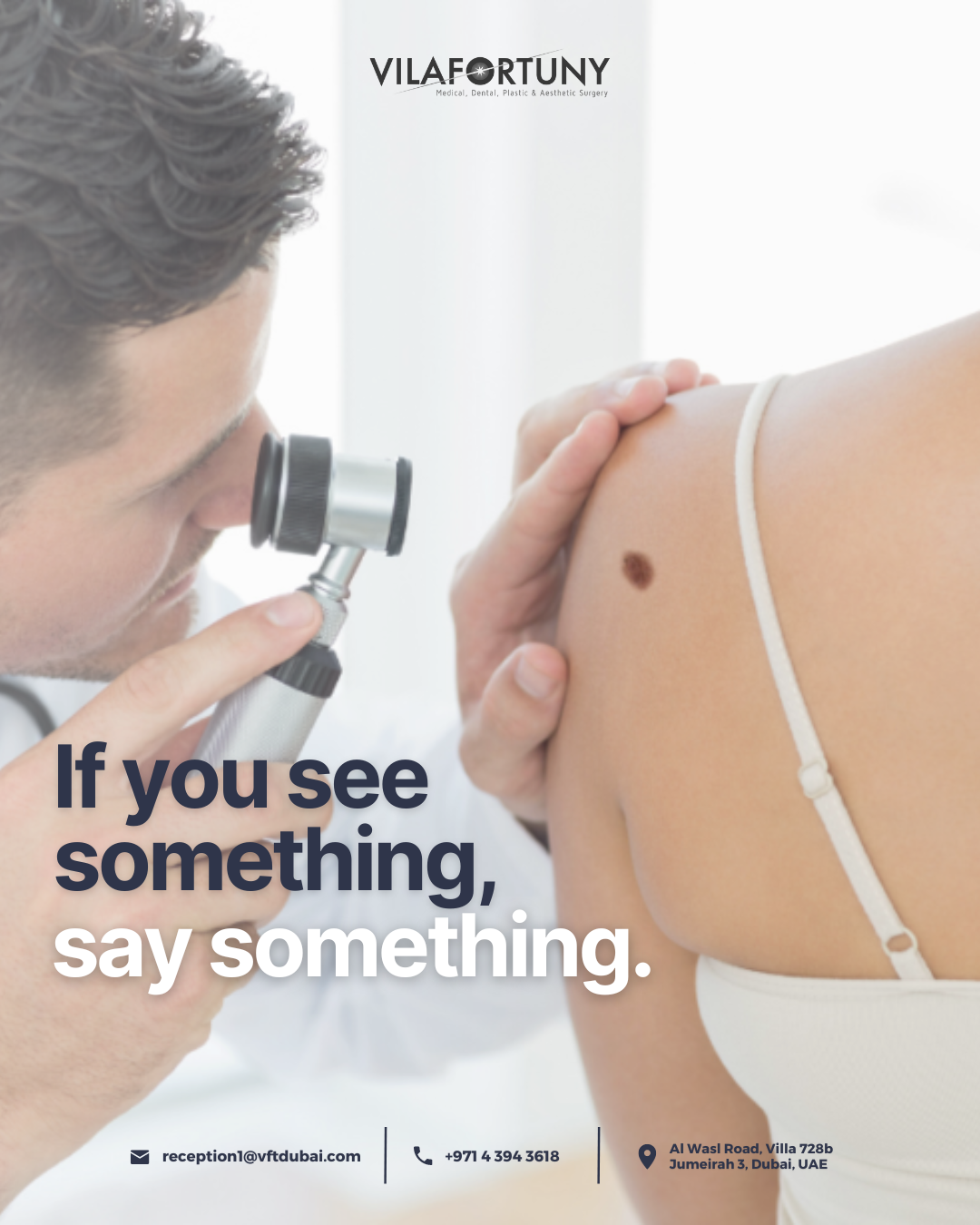Skin Cancer Screening Services That You Can Trust
You visit your primary care doctor every year for a checkup, and schedule regular teeth cleanings/checkups with your dentist, but what about your dermatologist?
Dermatologists are specially trained in detecting skin cancer. Most skin cancers are highly treatable, especially when they’re caught early, so having skin cancer screenings is an important part of your healthcare routine.
Skin cancer is the most common cancer and also the easiest to treat when found early. When found early the risk of spread and disfigurement from the disease or its treatment is minimized. So, if you see something, say something. It literally takes less than a minute to provide piece of mind or to get on track for a cure.
We are here to support you. The vast majority of skin cancers when found and treated early are not life threatening. Rest assured that we are with you every step of the way. We are committed to address your skin condition by providing timely assessments, management, and follow–up to optimize your appearance and health.
Prevention:
What’s even better than curing a skin cancer is avoiding it in the first place. Prevention is our best defense. We help you manage your skin to minimize your risk of developing cancer. From evidence–based advice on lifestyle modifications to topical treatments and light–based preventative therapy. We are here to help.
At Vilafortuny, our purpose is simple: To detect skin cancer early and arrange timely management. To do this we provide easy access to skin examinations and same day biopsies of concerning lesions. Based on the pathology and location of the disease we provide medical, surgical or laser management with the goal of cure while optimizing the cosmetic outcome. And this is a Skin Cancer Screening Services that you can trust.
A skin cancer screening is a 15 min visual inspection of your skin by a medical professional. No blood work is conducted at a screening.
Any adult who’s never had one, is advised to consider scheduling a full–body skin exam to establish a baseline and to discuss whether, or how often, regular skin checks are necessary.
Your appointment will involve a thorough examination of your skin — from the top of your scalp to the bottoms of your feet — by a dermatologist. They will look for suspicious spots that could be cancerous.
Take matters into your own hands with self-screening.
Regardless of how often you see your dermatologist, you should do your best to monitor your own skin – and that of your partner or close family members. Grab a mirror and perform a skin exam of your own every six months. Look for moles or spots that:
–Have changed in size, shape or color over time.
–Bleed or do not heal after several weeks.
–Are asymmetrical or have irregular borders.
–Are larger than 1cm in size.
And, above all else, practice safe sun habits to prevent skin cancer from developing in the first place.
Awareness
Knowing what to look out for is an important aspect of early detection. Often early skin cancers present much like something common like an insect bite, pimple or a scratch. In these instances, simply being aware of whether a lesion is new and persisting or old and changing may be enough to warrant a skin check. . Bottom line, if you suspect something doesn’t look or feel right, don’t let it go undiagnosed.



